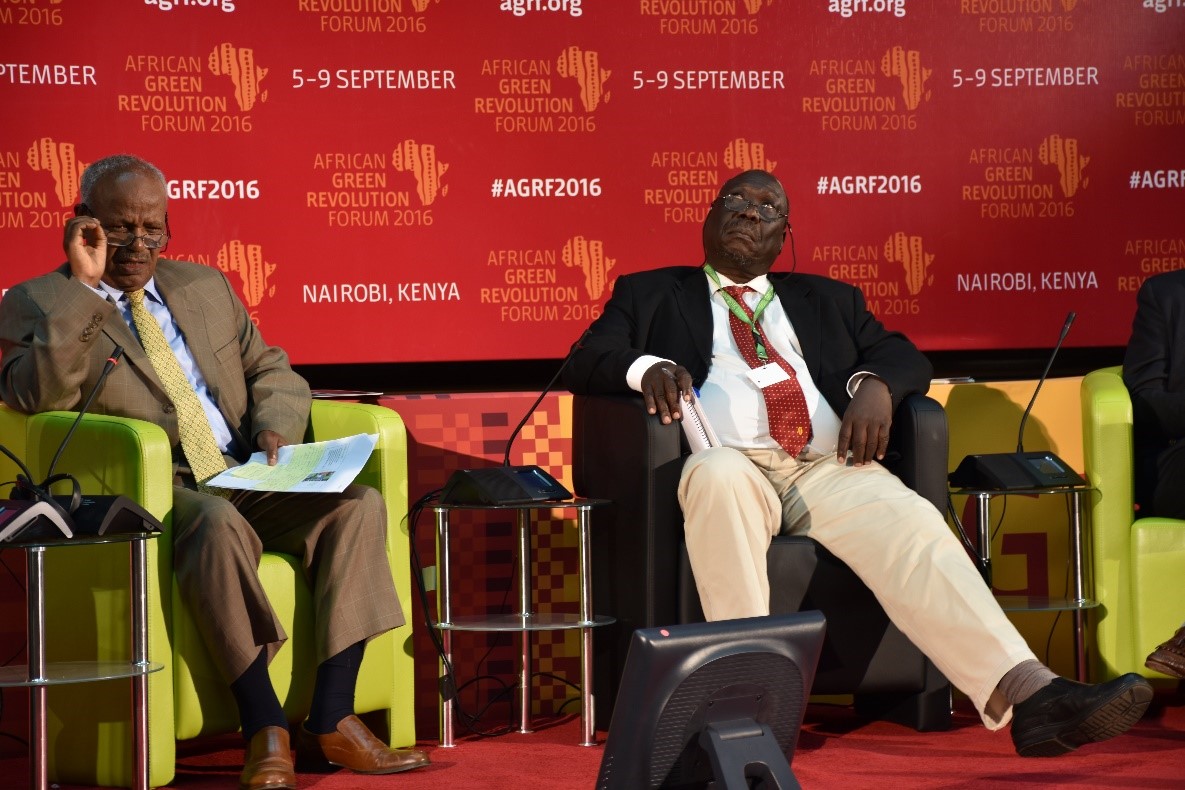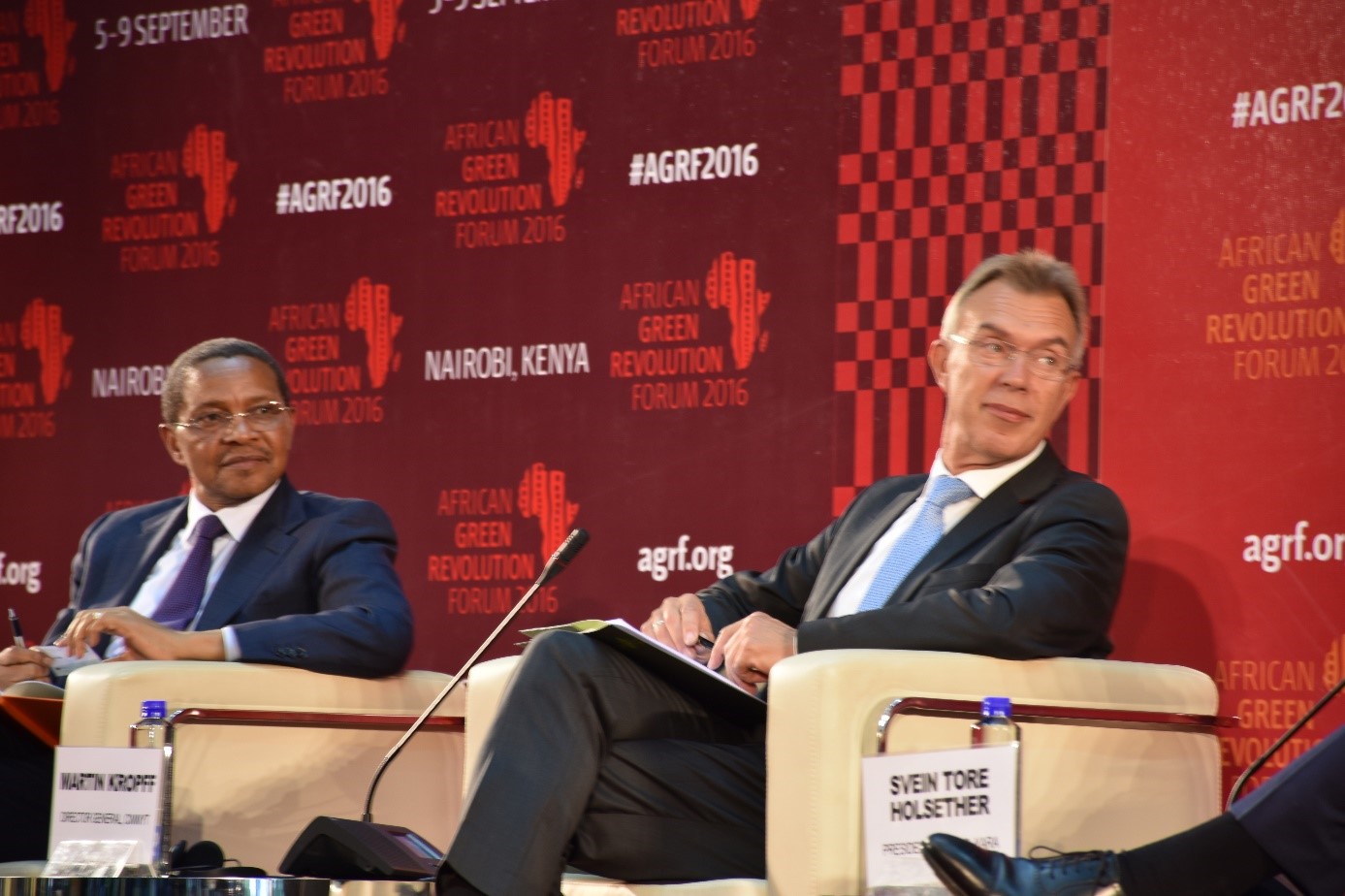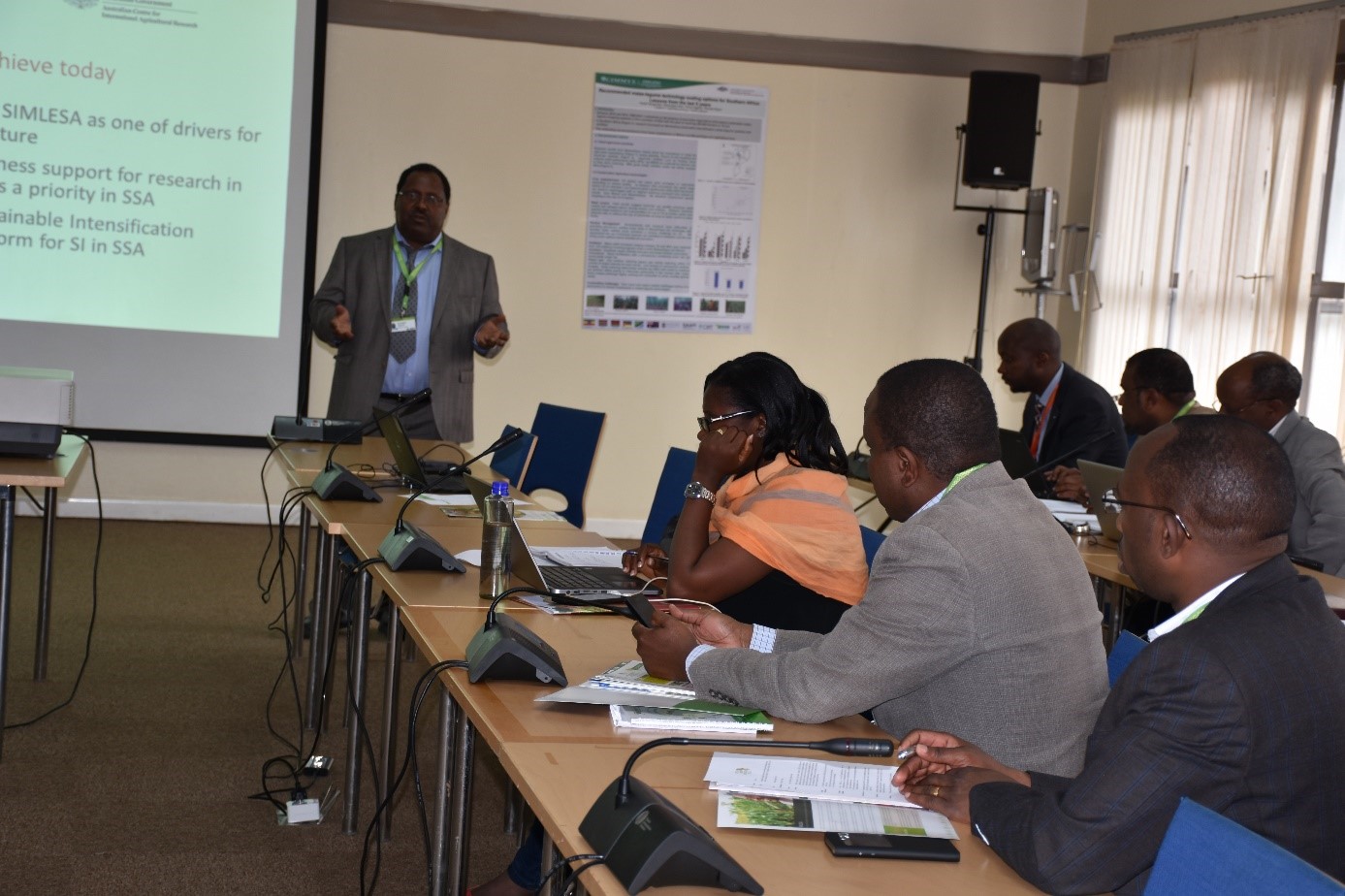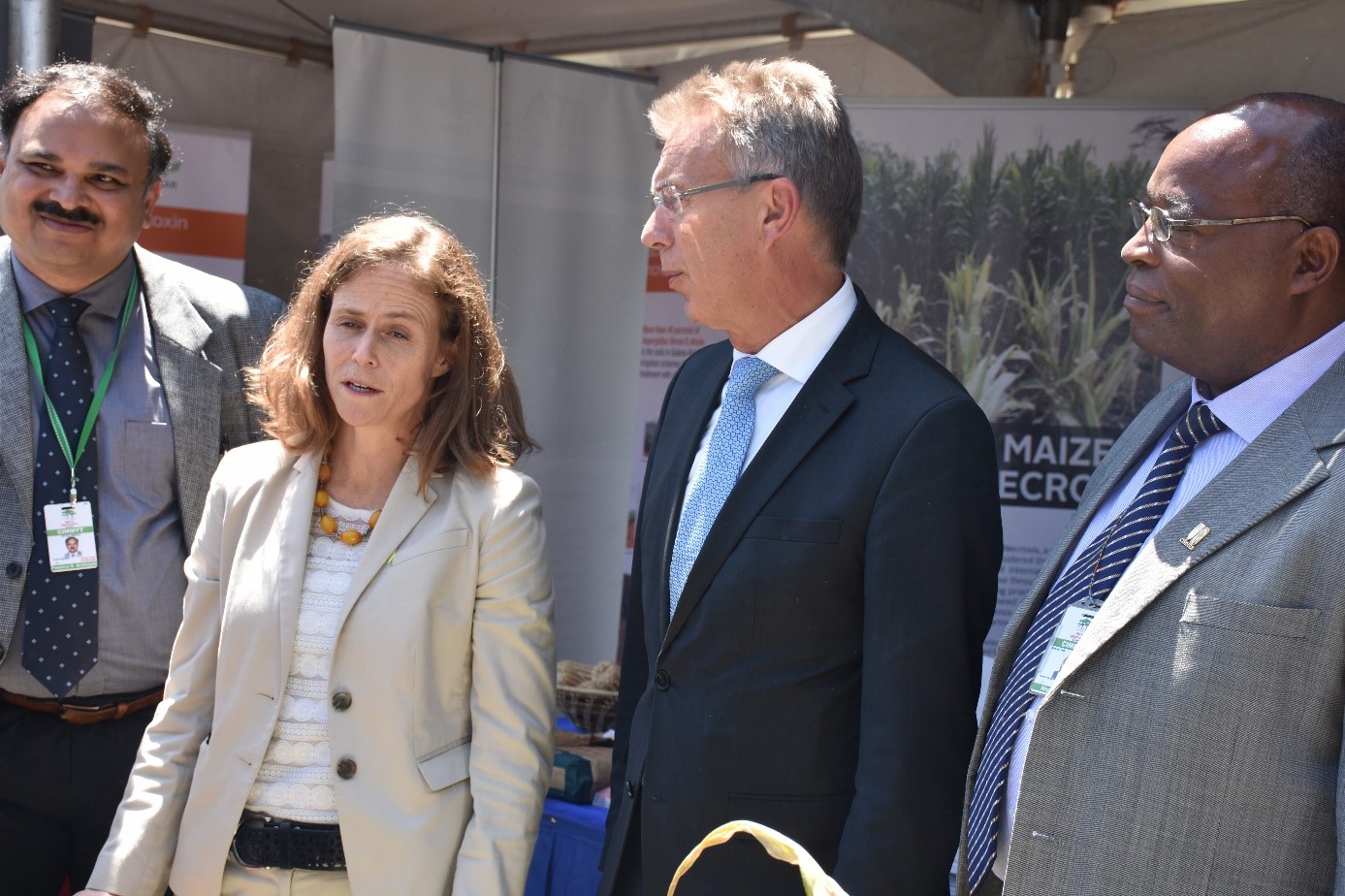
NAIROBI, Kenya (CIMMYT) — The International Maize and Wheat Improvement Center (CIMMYT) team led by Director General Martin Kropff joined 1700 delegates from around the globe who participated in the sixth African Green Revolution Forum (AGRF) that brought together heads of state and government ministries, development partners, farmer organizations, private sector representatives, eminent thinkers, researchers, and finance and investment leaders.
Titled Seize the moment! Securing Africa’s rise through agricultural transformation, the forum focused on increasing investment in African smallholders to maximize the economic opportunities in Africa’s agricultural sector and bring about a much needed transformation.
The Sustainable Intensification of Maize and Legume Systems for Food Security in Eastern and Southern Africa (SIMLESA) program, together with the Australian Centre for International Agricultural Research (ACIAR), hosted a side event focusing on SIMLESA’s work on sustainable intensification practices and its implications for policymakers. Over 30 participants took part in this event.

After receiving a brief from John Dixon, principal adviser for research at ACIAR, SIMLESA project leader Mulugetta Mekuria and a host of other presenters and participants agreed that the challenge of rising population and dwindling land resources makes farming system production practices, such as sustainable agricultural practices that help reduce environmental risks to crop production, a viable option for African farmers.
Mekuria singled out successes of SIMLESA that show that farmers’ food production, profitability and livelihoods as well as family nutrition have improved as a result of the diversity of food crops grown in these farming systems. He called on governments, policymakers and the private sector to institutionalize and include sustainable agricultural intensification in national agricultural development policy to achieve the much needed agricultural transformation.

A session that focused on harnessing Africa’s potential to create competitive grain value chains benefited from the participation of Tsedeke Abate, project leader of Stress Tolerant Maize for Africa and CIMMYT Maize Seed Systems in Africa. He noted that, despite the availability of improved maize varieties in Africa, 49 percent of maize varieties planted by smallholders are obsolete, yet remain popular in Africa’s seed value chain. Abate emphasized the importance of replacing these with new, improved stress tolerant maize varieties to strengthen smallholders’ food systems.
“Solutions for Africa’s problems are within farmers’ reach. It is therefore important for governments and the private sector to implement holistic workable models that will favor smallholders, like availability of improved varieties, inputs and resources, fertilizers, technology, support programs, sufficient extension to farmers,” said Abate.
Another session on the best way to achieve agricultural transformation featured Kropff alongside former President of the Republic of Tanzania, Jakaya Kikwete; Svein Tore Holsether, President and CEO of YARA; Joseph DeVries, Chief of Agricultural Transformation at AGRA; and Sheila Sisulu, Former Deputy Director of WFP and Africa Food Prize Committee member.

Kropff explained that the key to unlocking smallholders’ potential is to enable them to access improved varieties, innovative technology and mechanization that will save farmers’ time and boost their capacity to maximize production and reduce food waste, which is rampant in Africa. “As the region faces increasing challenges from climate change, rapidly growing urban populations, and an urgent need for jobs, agriculture offers solutions, providing a clear path to food and nutritional security and employment opportunities for all Africans,” Kropff noted.
With the right policies and investments in place, lives of hundreds of millions of smallholder farmers could be transformed, putting all African countries on the path to sustainable agricultural transformation, concluded Kropff.
Emphasized throughout the forum was the challenge of building on available opportunities to secure investments that will improve lives of smallholders. The good news is that AGRF culminated with commitments of over USD 30 billion to transform African agriculture.
 Nutrition, health and food security
Nutrition, health and food security 
